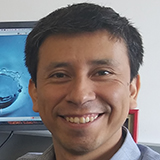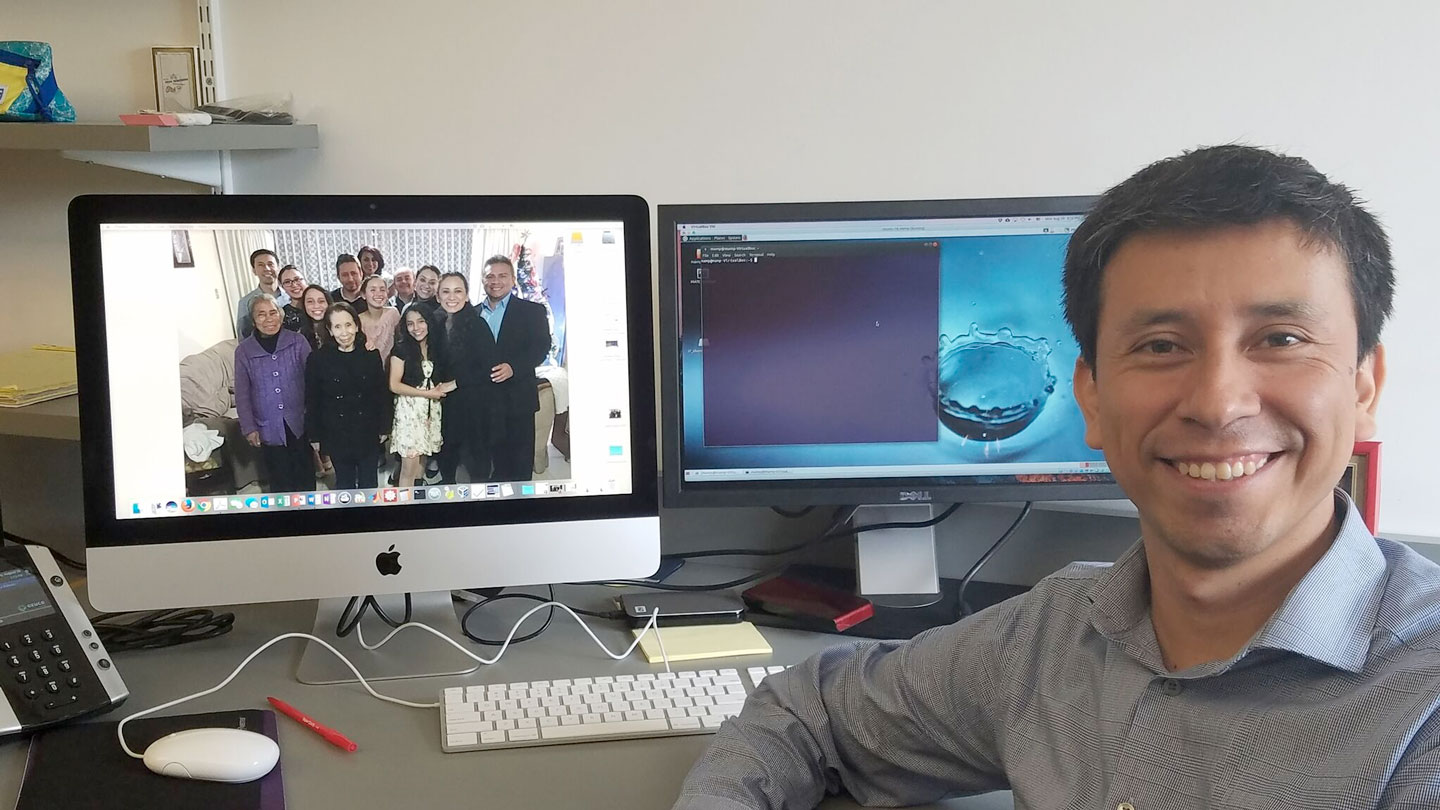Notice of Online Archive
This page is no longer being updated and remains online for informational and historical purposes only. The information is accurate as of the last page update.
For questions about page contents, contact the Communications Division.

visiting assistant professor of chemistry
Ph.D., chemistry, University of Pennsylvania
What I study:
“I am a chemist trained in both computational and experimental techniques. I am intrigued by a wide variety of problems in chemistry, physics, and material science. Recently I have worked on computational modeling of materials, using quantum mechanical tools through computers to analyze different properties of systems of interest. One aspect I like about it is that you’re not restricted to a particular set of experiments. My main focus areas are design principles of electronic devices, energy-related problems, and catalytic processes in the environment.”
What compelled me:
“Sometimes I wonder whether science has shaped the way that I think, or if the way that I think drew me to science. I’m still debating that, but I’m a concrete person. Its systematic approach really attracted me to science. In science, of course, things can change; not everything is fixed. You can have new tools and developments that can help you to push new frontiers of knowledge forward. But what doesn’t change is the way that you address problems. You still need rigorous testing of ideas.”
What my goal is:
“At Lafayette, my mission isn’t to make every student a chemist. My goal is to help my students understand basic principles of science. Chemistry intersects with a lot of disciplines, and I find that exciting. Some of my students will go into engineering, the arts, etc., but speaking other disciplines’ language will help them expand their opportunities. The types of problems people are trying to tackle today are very complex, and it really requires people of different backgrounds to get the best results possible. For instance, being able to collaborate with chemists will enable an engineer to make better projects.”

What I’m sitting with:
“This photograph of my family was taken at Christmas in Mexico, where I was born and raised. I am the youngest of five siblings, and we are all first-generation college students. My parents only went to elementary school, but they always made a case for education being very important. They all live in Mexico, and the distance is hard, but it can also strengthen relationships and make you realize how much support you really have from people. I don’t think I ever doubted that my family was on my side, but it’s different to think that’s the case and to maybe take it for granted and then to experience it and know it for sure.”
Categorized in: New Faculty

